Among the most concerning digestive health problems that a rabbit can contract is rabbit diarrhea. Rabbit diarrhea can be the result of many factors. These include bacteria, viruses, and improper diet. As a result, the disease can make your rabbit very sick.
Depending on the severity, rabbit diarrhea can be life-threatening for your bunny. Furthermore, it accounts for one of the most common causes of sudden death in rabbits! Understanding the causes and symptoms of rabbit diarrhea can help pet owners prevent this serious illness.
This article will tackle everything you need to know about rabbit diarrhea. You’ll know its symptoms, causes, treatment, recovery, cost, and prevention. We know how much you care for your rabbit. So, we’ve made sure not to miss out on any helpful information!
Symptoms
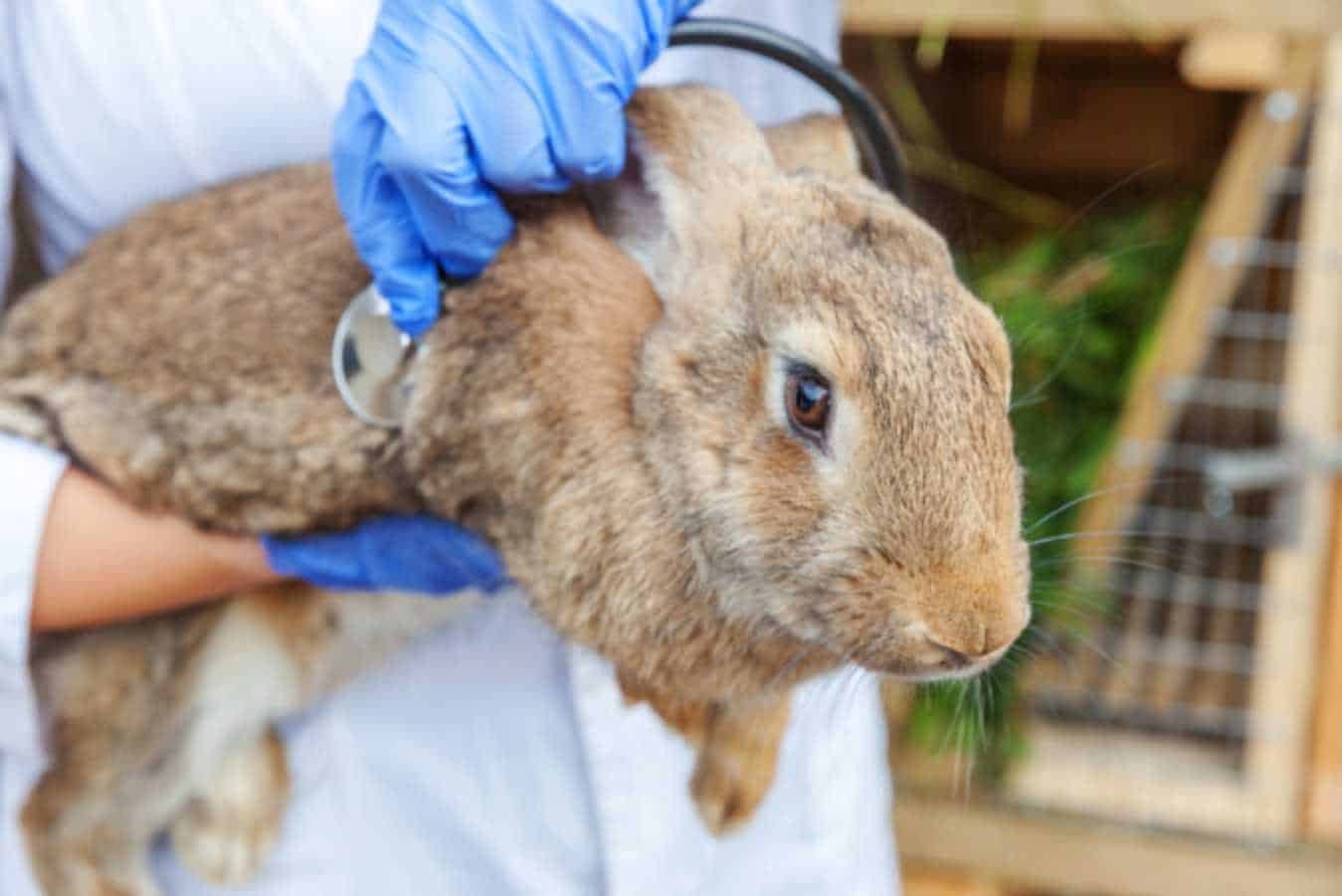
The symptoms of rabbit diarrhea can be easy to spot. These include the following:
- Decreased appetite
- Lethargy
- Loss of weight
- Watery, loose stool
- Changes in the color of rabbit stool, such as green, yellow, or black
- Bloating
- Fatigue
- Behavioral changes, such as avoiding human and animal interaction
- Tooth grinding
- Shivering
- Stomach pain exhibited by crouching
- A mucky bottom
If symptoms persist and progress, contact your rabbit’s veterinarian immediately. Rabbit diarrhea can be fatal and life-threatening for your pet. Hence, it’s crucial to take the signs and symptoms seriously.
Primary Causes
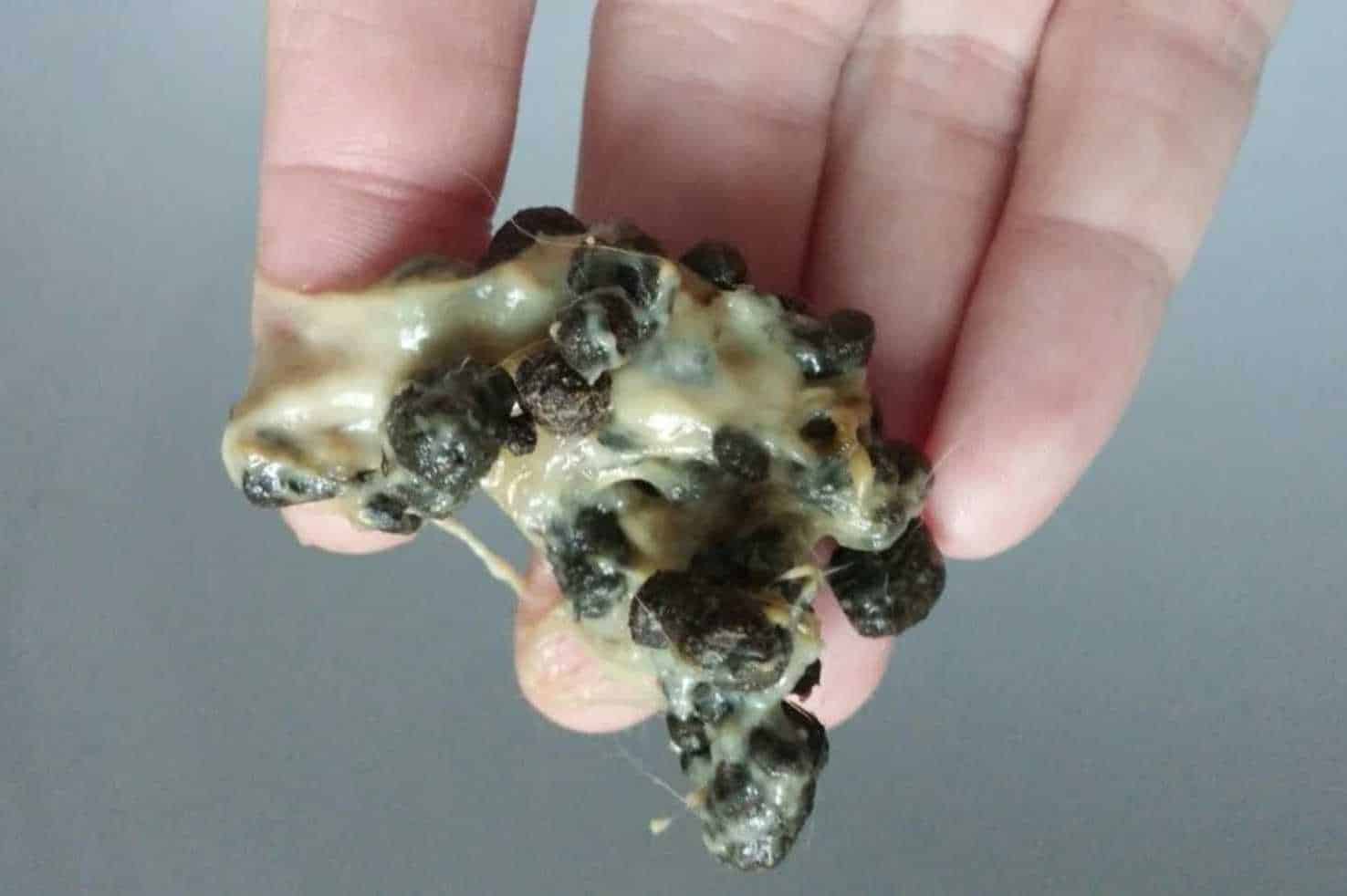
Rabbit diarrhea can be caused by a number of factors. Sudden changes in your rabbit’s diet are one of the primary causes. Other causes include invasion of bacteria and increase of toxins. Knowing the cause of rabbit diarrhea can help you and your rabbit’s vet devise an appropriate treatment plan.
Bacteria
The harmful bacteria that can cause your rabbit to contract diarrhea is Escherichia coli. This bacteria can multiply inside your rabbit’s stomach. As a result, it will allow symptoms of diarrhea to manifest.
If E. coli invades your rabbit’s tummy, colibacillosis may occur. Colibacillosis is a disease occurring because of E. Coli’s increased levels. This bacterial disease causes many symptoms that upsets your bunny. Among these are dehydration, profuse watery stool, yellow to brown poop, weight loss, and perineal staining. [Complete Guide to Rabbit Poop: What’s Normal and What’s Not?]
Colibacillosis can make rabbits of any age ill. In a study, bunnies who have received high doses of antibiotics are affected. These antibiotics particularly cover gram-positive organisms.
Virus
The virus that primarily causes diarrhea in rabbits is Rotavirus. This virus can affect rabbits of all ages, even those between 8 to 12 days old!
Not only does the Rotavirus cause diarrhea. It also induces anorexia, dehydration, and staining of the perineum. Furthermore, rabbits can also suffer from profuse green to watery yellow stools if they contract this disease.
Because of this, diarrhea caused by the Rotavirus can be life-threatening if left untreated.
Incorrect Diet
One of the most common causes of rabbit diarrhea is incorrect diet. Keep in mind that bunnies are herbivores. Hence, they rely mostly on hay and grass, so rabbits need to eat lots of fiber daily. Fiber is responsible for ensuring that your rabbit’s digestive system functions well. For this reason, rabbits with a diet low in fiber can exhibit diarrhea.
Another thing pet owners must consider is the rabbit’s carbohydrate intake. Too many carbohydrates can disrupt the pH of your rabbit’s stomach. As a result, your bunny encounters diarrhea and gastrointestinal problems. Therefore, a rabbit’s carbohydrate and protein portion should be limited to 13-14% of its daily diet.
Excess levels of carbohydrates and too little fiber will allow toxins to multiply. Toxins and harmful gas can potentially alter your rabbit’s digestive system. Therefore, lethargy, diarrhea, dehydration, weight loss, and reduced fecal pellet formation can occur.
Other causes
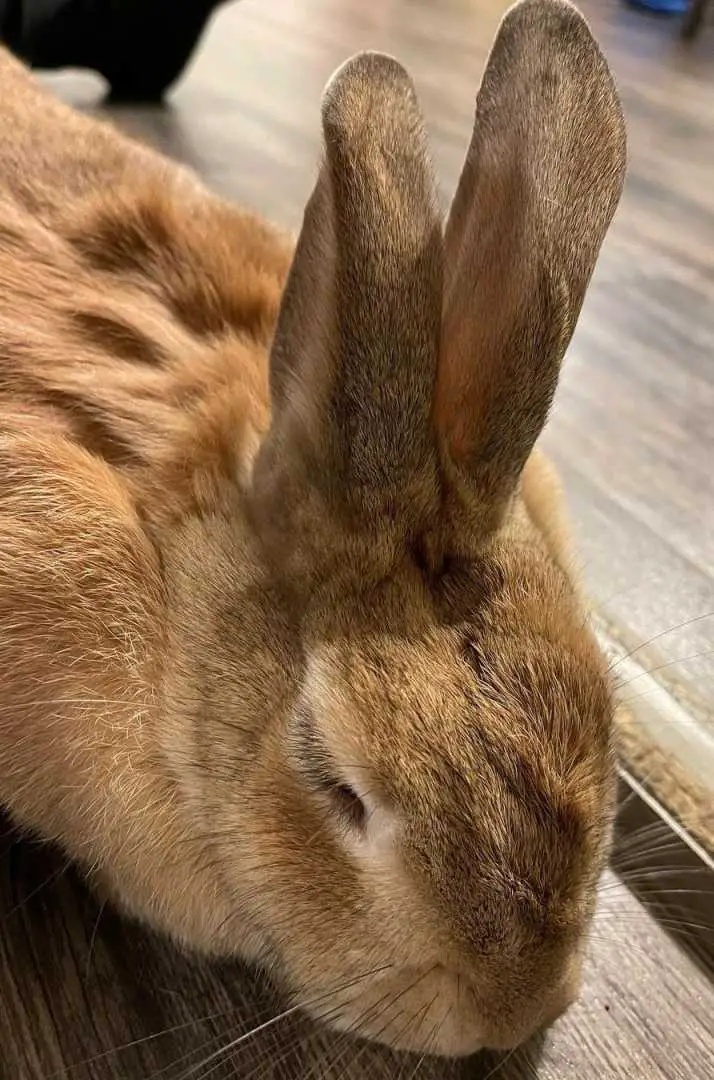
Antibiotics
Antibiotics can also cause rabbit diarrhea, also referred to as “antibiotic-associated diarrhea.” Antibiotic-associated diarrhea occurs when certain antibiotics act upon a very specific type of bacteria. Some of these antibiotic drugs are lincomycin, ampicillin, erythromycin, and penicillin.
Hence, rabbits must never be given the listed antibiotics orally. Giving rabbits the antibiotics mentioned earlier by mouth is dangerous. As a result, it may lead to antibiotic-associated rabbit diarrhea.
Cancer
Cancer is among the causes of rabbit diarrhea. Altered digestion and diarrhea can happen because of many types of cancer.
Treatment
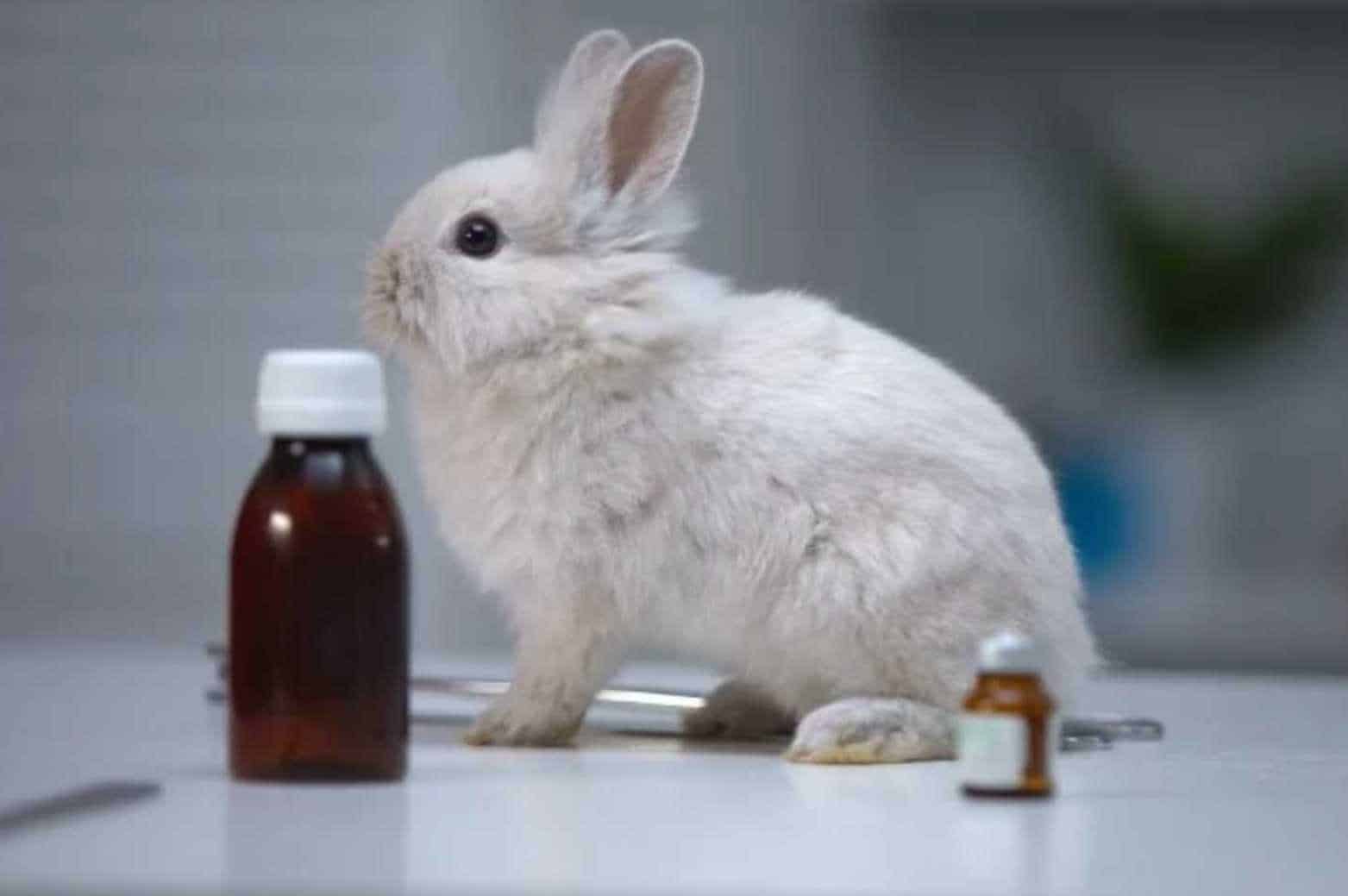
The first step to treating rabbit diarrhea is to identify the cause. From there, your rabbit’s veterinarian can plan out treatment methods for your bunny. One of the primary actions that your rabbit’s doctor would recommend is to increase fiber in your rabbit’s diet. Some veterinarians may prescribe a 100% hay and water diet for a few weeks.
But remember, every rabbit is treated as an individual. Hence, the treatment for one may not be the same for the other rabbit. The following are treatment options for rabbit diarrhea:
Correct diet
If the cause of your rabbit’s diarrhea is an incorrect diet, a proper diet plan should be implemented. Thus, a balanced diet should make your rabbit feel better.
Prescription of antibiotics
Diarrhea caused by bacteria may be treated with antibiotic therapy. Antibiotics are potent drugs that can make significant changes to your rabbit’s health. Hence, it’s important to only give the antibiotics prescribed by your rabbit’s vet.
In cases when a rabbit contracts coccidiosis, your rabbit may be prescribed sulfonamides. Antibiotics from the sulfonamides group, also called “sulfa drugs,” target bacteria to halt watery and severe diarrhea. Secondly, your rabbit may also be administered anti-diarrhea and digestive medicines.
Medicines not prescribed by your vet may just worsen your rabbit’s condition. In conclusion, it’s essential to listen to and follow what the doctor says!
Water Therapy
Dehydration is often seen in rabbits experiencing diarrhea. Because your rabbit goes to the potty often, excess water is lost from the body. Therefore, therapy or fluid therapy may be recommended to balance intestinal flora.
Recovery
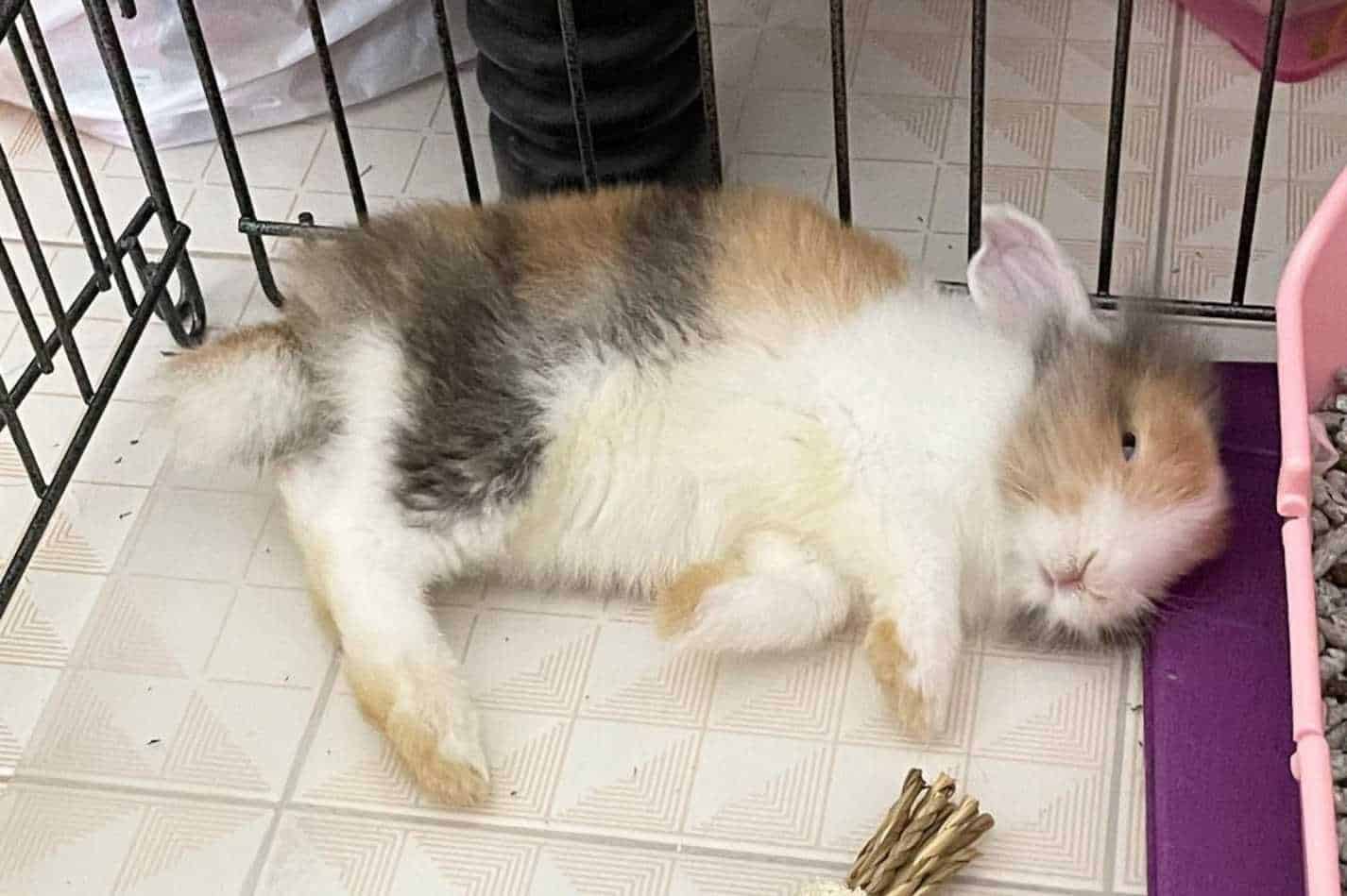
The recovery time for rabbit diarrhea is different. It would often depend on the severity. Rabbits typically recover from diarrhea after two weeks to three months of contracting the illness.
As your rabbit hops through the recovery journey, you may give support by doing the following:
- Cleaning your rabbit’s bottom: Your rabbit’s bottom can be muddy and dirty because of rabbit diarrhea. Perineal staining is among the problems pet owners encounter with an ill bunny. Thus, giving your rabbit a dry bath can help solve this problem. To do this, you can apply cornstarch on the stained areas of your rabbit’s fur. Then, gently massage and pat away the excess powder. If you’re not keen on dry baths, you can try giving your bunny a wet sponge bath. Through this, you can clean your rabbit more thoroughly.
- Ensuring a correct diet: After diarrhea, you surely don’t want to upset your rabbit’s stomach anymore! Make sure that your rabbit eats well, gets enough fiber, and drinks clean water.
- Maintaining a fuss-free and sanitary environment: The recovery stage can be a crucial time for your bunny. By cleaning your bunny’s cage and nest, you are helping your pet recover better. Besides having a fuss-free and clean environment, your rabbit needs a peaceful one too! It’s an excellent idea to keep your rabbit’s cage in a quiet corner of your home.
Cost
While it’s tricky to estimate a rabbit’s vet bill, the cost of rabbit check-ups varies from $25 to $55. And of course, if your rabbit is severely sick, expect to spend more. On Amazon, rabbit supplements for cellular and digestive health range from $10 to $50. Here are some expenses you need to prepare for when your rabbit gets sick.
| Rabbit Needs | Cost |
| Check-ups | $25 to $55 |
| Vaccinations | $60 to $90 |
| Rabbit supplements | $10 and above |
| Hay | $12 and above |
Prevention
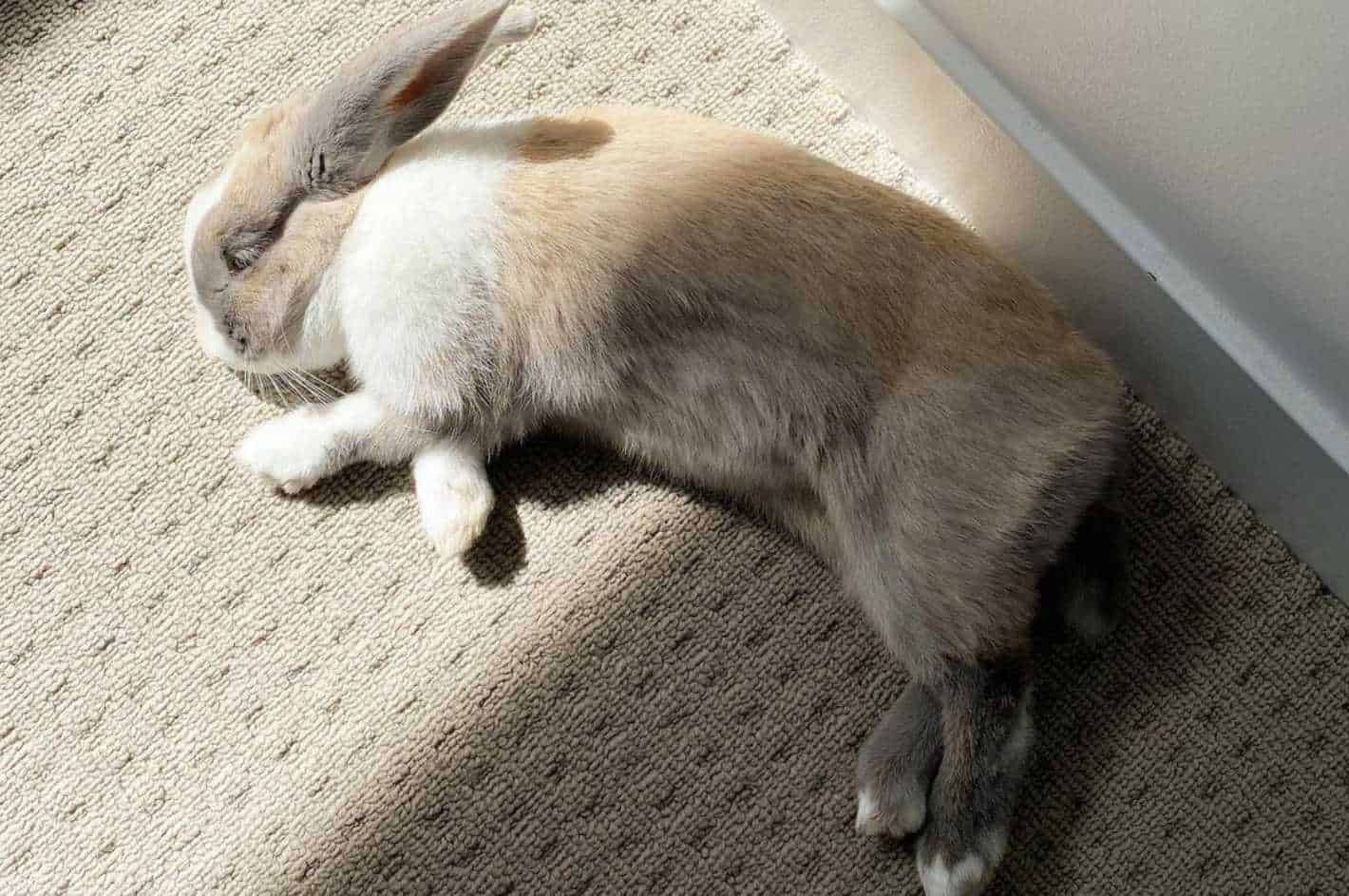
Preventing Rabbit Diarrhea in Young Bunnies
Rabbits, especially young ones, can easily get diarrhea through sudden diet changes. To prevent diarrhea among kits, wait until the baby bunnies turn two months old. After that, you can transition them from their mother’s milk to other foods.
Weaning baby bunnies from their mother’s milk at two months maximizes the antibodies and nutrients from the doe’s milk.
Another helpful tip to prevent rabbit diarrhea is through sanitation. Before carrying baby bunnies, always wash your hands thoroughly. You should also clean your rabbit’s cage every week. Cleaning the cage weekly removes harmful viruses and bacteria that might infect your rabbit.
Preventing Rabbit Diarrhea in Adult Bunnies
Preventing rabbit diarrhea in adult rabbits primarily involves a correct diet. With the right diet, adult rabbits get enough fiber for proper digestive functions.
A high-fiber diet with low carbohydrate and sugar intake is ideal for your rabbit’s health. Give your rabbit enough hay every day. Constant access to hay maintains motility in your pet’s digestive system.
One of the most pertinent factors in preventing diarrhea is the gradual introduction of food. Never give your rabbit large amounts of new food at once. Always introduce food slowly to not upset your rabbit’s gut.
It is also recommended that your rabbit gets enough exercise throughout the day. Hence, you should allow your rabbit to run and play for optimal health and good digestion.
Summary
Rabbit diarrhea can be a life-threatening condition. The symptoms of this illness can get fatal, depending on the severity of the rabbit’s diarrhea. But the good thing is that it is highly preventable! Your rabbit can have proper digestion through a correct diet, ample exercise, and good sanitation.